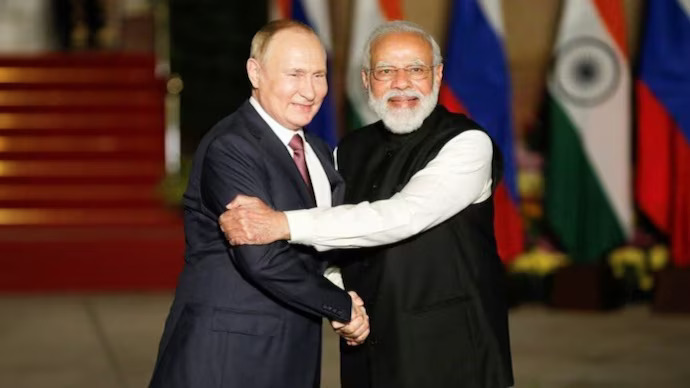Russia embraces Hindi: Universities turn classrooms into hubs of cultural diplomacy
By | International | 10-Sep-2025 14:31:23

News Story
In an unprecedented move reflecting the intersection of education and
diplomacy, Russian universities are ramping up efforts to teach Hindi,
signaling a broader alignment with India’s rising global influence. The
initiative underscores Moscow’s recognition that language is more than a tool
of communication—it is a conduit for strategic and cultural engagement.
Konstantin Mogilevsky, Deputy Minister of
Science and Higher Education, called on universities to expand Hindi programs,
citing growing student interest across the country. “We have to have more
students learn Hindi,” he told TASS, emphasizing that a language spoken daily
by more Indians than English cannot be ignored.
Institutions in and around Moscow—including
MGIMO (Moscow State Institute of International Relations), the Russian State
University for the Humanities, the Institute of Asian and African Studies at
Moscow State University, and Moscow State Linguistic University—have multiplied
Hindi groups two to three times in recent years. The trend has spread beyond
the capital, with St. Petersburg State University and Kazan Federal University
also offering courses to meet rising demand. Government officials report a
steady increase in annual applications for Hindi programs.
The push comes at a time of shifting global
alliances. Following the U.S. imposition of trade restrictions on India in
August, Moscow and New Delhi have drawn closer. Since 2022, India has emerged
as a major buyer of Russian crude, navigating international sanctions with
strategic partnerships.
Long-term collaboration underpins the
initiative. External Affairs Minister S. Jaishankar recently described Russia
as “one of India’s most dependable partners,” noting that bilateral ties have
remained among the steadiest of major global relationships since World War II.
The Kremlin confirmed that President Vladimir Putin will visit India in
December, further cementing political and cultural ties.
For Moscow, Hindi has evolved from a peripheral academic offering into a key instrument of cultural diplomacy—an educational bridge reinforcing the enduring strategic partnership with India.